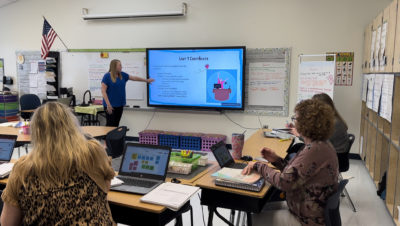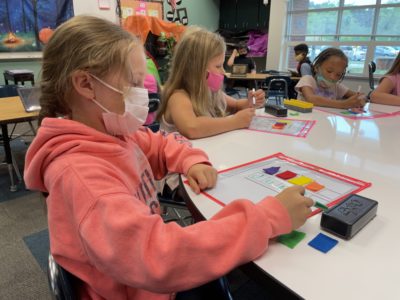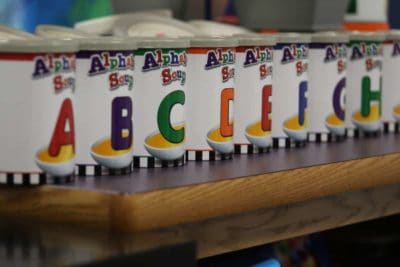
Literacy efforts in North Carolina have garnered national attention over the past year, especially related to the rollout of the Language Essentials for Teachers of Reading and Spelling (LETRS) professional learning across our state.
Here in Asheboro City Schools, we could see from the beginning that LETRS had the capacity to be transformative for our teachers and in turn for our students, therefore we wanted to plan for the greatest impact.
As members of LETRS Cohort 3, we decided to use the 2021-2022 school year to plan and be proactive for our start this fall. We began with our own research, learning all we could about LETRS and solidifying our understanding of the science of reading.
We took this information to our district leaders and to our board of education, aligning our understanding and vision for change. In order to lead most successfully, our district leaders decided we needed a head start on LETRS training. A group of administrators and central office personnel, including myself, completed the LETRS for Administrators training in the Spring of this year. At the same time, our instructional facilitators and reading specialists began the LETRS 3rd edition Teacher training ahead of all district teachers in order to prepare to lead, coach, and support all staff.
That group of trained leaders became our district implementation team. We planned how we would change our curriculum and instructional practices to better align with the science of reading, help teachers manage the hefty workload associated with LETRS, and provide support for the changes we expect. As a result of many planning sessions, we made several key changes:
- We adopted a new literacy program for core instruction at the elementary level.
- We completed an inventory of needed intervention resources to address all components of literacy, and purchased what we lacked.
- We used what we learned in the LETRS course for administrators to develop common literacy schedules across the district.
- We sought approval from our board of education for additional professional development days in our calendar for LETRS training and module work.
- We used resources provided by the Department of Public Instruction (DPI), such as supports for professional learning communities (PLCs), to create a professional learning and coaching schedule for each school.
Each of these strategies was intentionally designed to maximize learning for teachers, and thereby maximize success for our students. Our Asheboro City Schools curriculum and instruction team is to be commended for their dedication and deliberate work on this front. I could not be more proud of Dr. Rich, Mrs. Wiles, Ms. Manning, and our supporting district staff for their intentional work to make this initiative come to life in our district. They have been open, forward-thinking, and have taken advantage of every opportunity to learn about the science of reading, build their own knowledge, and work to embrace the steps of implementation science.
While the work is only in its infancy, our team has connected with every aspect of the support provided by DPI to understand the shifts and structures necessary to approach this initiative with fidelity. Because we took advantage of the opportunity to participate in LETRS training for administrators early, and because our curriculum and instruction team was dedicated to learning all they could about the science of reading, we believe that we are setting our district leaders, principals, coaches, and teachers up for success as they move forward in the journey to shift practices to align with evidence-based literacy research.
The guiding principle behind our collective effort is the understanding that our learners need this kind of innovative approach to literacy instruction. We realize that we are writing a new story of hope for our students as we embark on this journey together. They deserve the best we have to give them.
Recommended reading



